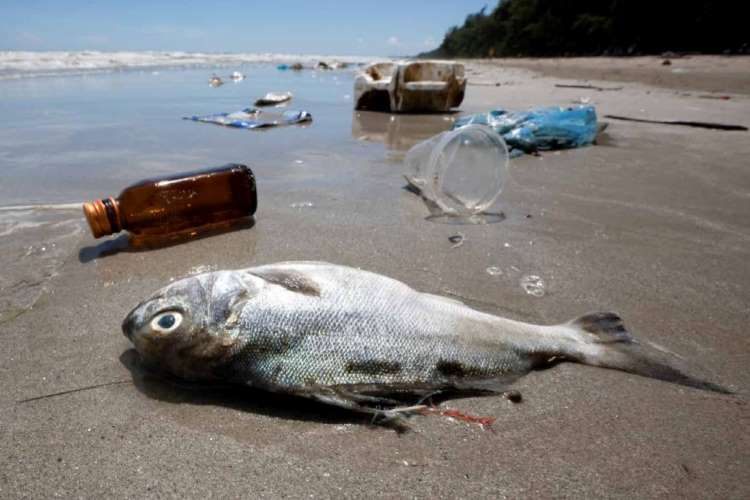The United Nations Environment Assembly, which will be held in Nairobi between February 28 and March 2, may come up with a legally binding global agreement to tackle marine plastic pollution leakage into oceans by setting national targets. The meet may also approve specific plans for the reduction of plastic use and the management of plastic waste.
The world produces more than 300 million tonnes of plastic every year. Plastic comprises 85% of marine litter — more than 8 million tonnes of plastic waste flow into the oceans every year. The United Nations Environment Programme (UNEP) expects this to double by 2025 if world nations do not make a concerted effort. UNEP warns that by 2040, plastic discharge into oceans could be 50 kg of plastic per meter of the coastline. Most marine plastic pollution comes from stormwater runoff, sewer overflows, poor waste disposal and management, industrial activities, and dumping.
READ I Centre, states must take green bonds route for clean energy, environment
No comprehensive treaty on marine plastic pollution
There are several treaties that cover plastic pollution. The Stockholm Convention seeks to protect human beings from the harmful effects of plastic products, the Basel Convention controls trade in plastic waste, and the International Maritime Organization is responsible for the management of plastic litter from ships. But there is no agency to tackle the menace of plastic pollution at a global level.
The proposal for a global agreement has gained momentum with 154 countries sounding their support. The groundswell of support for global action also came from the corporate sector. Seventy large users of plastic including IKEA, Unilever, Coca-Cola and PepsiCo came up with a joint statement announcing their plans to cut plastic production and use.
India has proposed an alternative resolution on single-use plastics that offers a voluntary framework, not a binding agreement. China called for ambitious goals and vowed to participate actively and constructively in the negotiations. The US also has announced its participation in the conclave.
Plastic pollution is a threat to marine life, which faces the risk of toxification, starvation and suffocation. Exposed to solar radiation, wind, and currents, plastic breaks down into micro plastics (smaller than 5 mm) or nano plastics (smaller than 100 nm). The small size leads to marine life accidentally ingesting these.
Plastic pollution is a major threat to human health, food safety, and coastal tourism. Scientists are yet to estimate the risk to humans from plastics ingested through seafood. But it is already known that water laced with plastics can cause hormonal changes, developmental disorders, reproductive abnormalities and even cancer.
Goal 14 of the UN sustainable development agenda seeks to ‘conserve and sustainably use the oceans, seas and marine resources’. It also calls for reduction of marine pollution from land-based activities including debris and nutrient pollution.

